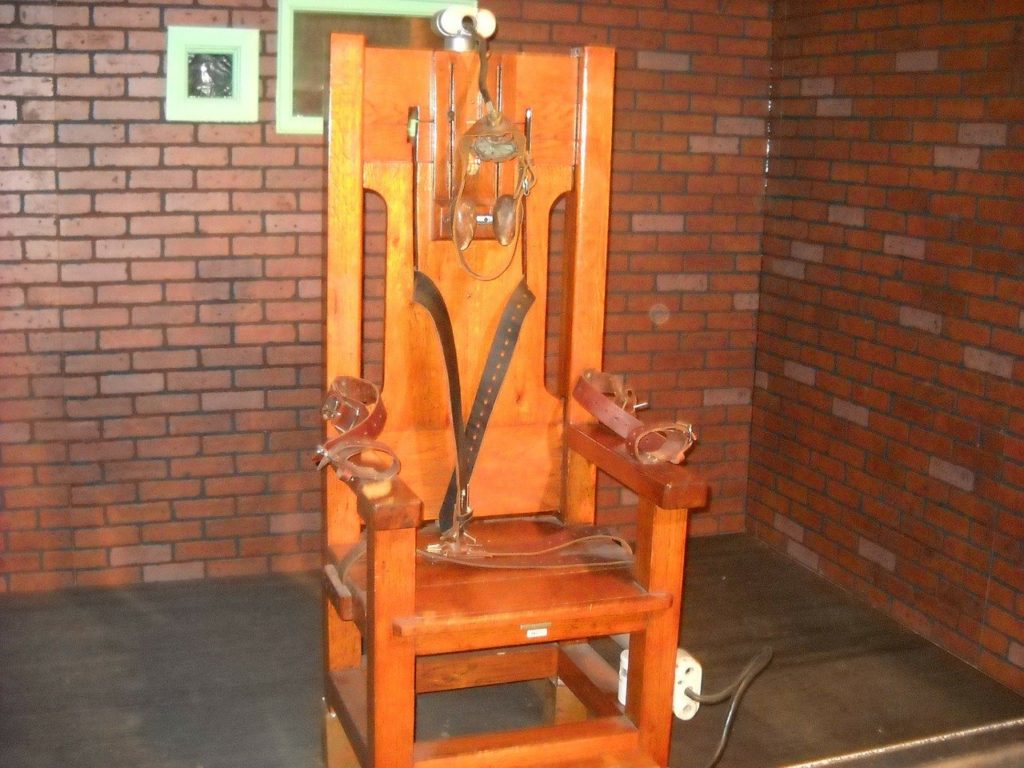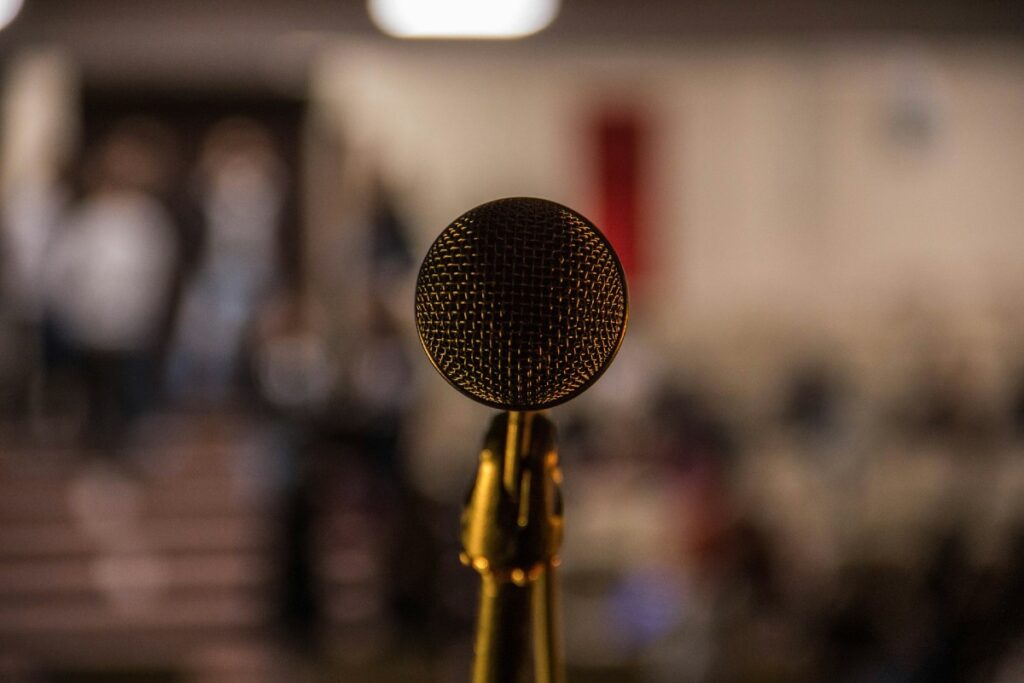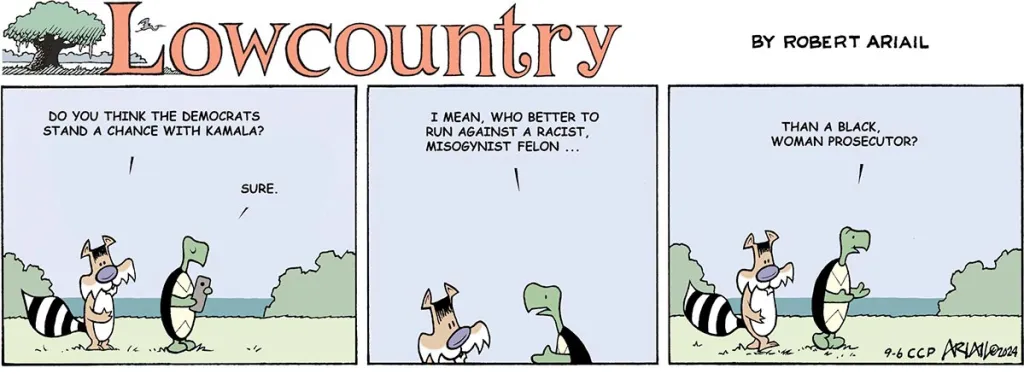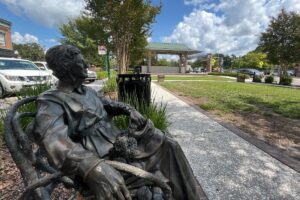STATEHOUSE REPORT | ISSUE 23.36 | Sept. 6, 2024
BIG STORY: A death penalty explainer for S.C.
MORE NEWS: USC gets high marks for free speech
LOWCOUNTRY, Ariail: Who better?
COMMENTARY, Brack: The wit and wisdom of Ted Lasso
SPOTLIGHT: Riley Institute at Furman University
MYSTERY PHOTO: Heavenly view
FEEDBACK: On the death penalty, vouchers
Explainer: The death penalty in South Carolina

By Jack O’Toole, Capitol bureau | After a 13-year hiatus, the state of South Carolina is planning to resume executions this month amid an ongoing debate about the fairness, expense and effectiveness of capital punishment.
According to an Aug. 30 S.C. Supreme Court order, six death row inmates, four of whom are Black, have exhausted their appeals and can be executed by the state Department of Corrections (SCDC) at 35-day intervals. The men awaiting execution are:
- Freddie Owens, 46, convicted of murdering Greenville convenience store clerk Irene Graves in 1997. Owens later admitted to killing a Greenville County cellmate as he awaited sentencing for Graves’s murder. Owens’s execution is scheduled for Sep. 20.
- Richard Moore, 59, convicted of murdering Spartanburg convenience store clerk James Mahoney during a robbery in 1999.
- Marion Bowman, 44, convicted of murdering 21-year-old Kandee Louise Martin in Orangeburg in 2002.
- Brad Sigmon, 66, convicted of killing his girlfriend’s parents, Gladys and David Larke, in Greenville County in 2002.
- Mikal Mahdi, 41, convicted of murdering Orangeburg County Sheriff’s Office Captain James Myers in 2004.
- Steven Bixby, 57, convicted of murdering two law enforcement officers – Abbeville County Sheriff’s Office Deputy Danny Wilson and State Constable Donnie Outz – in 2007.
First possible execution since 2011
If Owens’s sentence is carried out as scheduled, he will be the 44th South Carolinian put to death since the U.S. Supreme Court reinstated the death penalty in 1976, and the first since Jeffrey Motts, who was executed for the murder of his cellmate, Charles Martin, in 2011.
Since then, the state’s efforts to carry out death sentences have been stymied by pharmaceutical distributors’ hesitance to be seen providing drugs for states to use in lethal injections. To break the impasse, the S.C. General Assembly approved the legality of executions via the electric chair and then firing squads in 2021. Two years later, state lawmakers shielded drug providers from the risk of public exposure in 2023.
“Justice has been delayed for too long in South Carolina,” Gov. Henry McMaster said in a September 2023 statement after notifying the courts that the S.C. Department of Corrections had obtained the necessary drugs and was prepared to resume lethal injections as the primary method of execution. “This filing brings our state one step closer to being able to once again carry out the rule of law and bring grieving families and loved ones the closure they are rightfully owed.”
But with new questions about the death penalty currently swirling, and public support for the method at a 30-year low, according to a recent Gallup poll, opponents say it’s time to end the practice.
“Our state has real problems,” ACLU-SC spokesman Paul Bowers told the City Paper in a Sept. 3 interview, “and we’d all benefit if our politicians put as much energy into keeping people alive as they do into killing them.”
S.C.’s death penalty by the numbers…and one infamous case
South Carolina’s death penalty has long been plagued by questions of race, class, fairness, cost and more, as statistics maintained by the Death Penalty Information Center and South Carolinians for Alternatives to the Death Penalty demonstrate:
- Race: 74% of South Carolinians executed since 1900 have been Black, as are more than half of those currently awaiting execution.
- Procedure: Since the 1976 Supreme Court reinstatement, 60% of S.C. death sentences have been overturned due to court errors and prosecutorial misconduct.
- Innocence: Two death row inmates, Michael Linder and Warren Manning, have been exonerated and released since 1981. With 43 executions since 1976, that’s about 1 out of every 22 men executed.
- Geography: Four counties—Lexington, Greenville, Horry and Spartanburg—account for 51% of the prisoners on death row, with Lexington County responsible for almost 20%.
- Cost: Every inmate on death row costs South Carolina taxpayers more than $400,000 per year. Nationally, a death sentence has been found to cost between two and three times as much as a sentence of life without parole due to dramatically higher legal and incarceration expenses.
What critics say
Critics of capital punishment say the realities of those numbers were brought home in 2022 during South Carolina’s most infamous murder case, when S.C. Attorney General Alan Wilson announced that prosecutors would not seek the death penalty against longtime Hampton County attorney and powerbroker Alex Murdaugh.

Murdaugh, whose family essentially ran the county’s justice system for generations, was found guilty of murdering his wife and son and sentenced to life in prison in August 2023.
Wilson told The New York Times that the decision not to seek the death penalty was primarily driven by concerns about cost and the low likelihood that Murdaugh would ever be put to death.
“There are so many factors you have to consider,” Wilson said. “We felt like this case is complicated enough.”
At sentencing, S.C. Circuit Court Judge Clifton Newman, the Black man who presided over Murdaugh’s trial, noted the irony that Murdaugh and his family had sought the death penalty against more than 30 defendants during their time as county prosecutors.
“This case qualifies under our death penalty statute,” Newman said. “And as I sit here in this courtroom and look around at the many portraits of judges and other court officials, [I] reflect on the fact that over the past century, your family, including you, have been prosecuting people here in this courtroom, and many have received the death penalty, probably for lesser conduct,” Newman said.
South Carolina’s former U.S. Attorney, Bill Nettles of Columbia, said the Murdaugh case raises troubling questions about the state’s death penalty system.
“I don’t think there’s been nearly as fulsome a discussion as there should have been about why it is that people of color and less resources, having committed heinous but arguably not as heinous a crime as what Alex Murdaugh did, faced the death penalty and he didn’t,” Nettles told the BBC.
But does ‘state assisted homicide’ deter crime?
While death penalty advocates generally acknowledge there are problems with the system, they argue that some errors are inevitable in any human endeavor and that the deterrent effects of capital punishment are worth the price.
But research on the subject is mixed, with most recent studies finding that it has no measurable effect compared to a sentence of life in prison. In fact, in a 30-year head-to-head analysis, the murder rate was found to be significantly higher in death penalty states than in those without the death penalty.
In the end, though, critics of the death penalty like the ACLU-SC’s Bowers tend to set aside the numbers and speak of the human toll they say it takes on crime victims’ families, prisoners, executioners and members of the general public.
“We use sterile terms to talk about the death penalty, but it’s a brutal process that brutalizes everybody involved…including the people who work in execution chambers,” Bowers said. “The few [executioners] who’ve come forward have said it was a life-changing experience and not in a good way.”
One of those few was Craig Baxley, who told NPR in 2022 that he contemplated suicide after executing 10 men on South Carolina’s death row.
“Every single one of the death certificates says state-assisted homicide,” Baxley said. “And the state was me.”
- Have a comment? Send to: feedback@statehousereport.com.
USC gets high marks for free speech as controversy roils campus

By Jack O’Toole, Capitol bureau | Just one day after a free-speech controversy at the University of South Carolina prompted a question in the White House press room, a new report ranked USC as the 34th best college in the nation for freedom of speech on campus.
The rankings, released Sept. 5 by the nonprofit Foundation for Individual Rights and Expression (FIRE), were based on a poll of more than 58,000 students by the survey research firm College Pulse. It graded colleges on several free-speech metrics, including comfort expressing ideas, administrative support and openness. Here in the Palmetto State, only Clemson scored higher than USC, placing 21st. Overall, the University of Virginia took the top spot, with Harvard coming in last at number 251.
The USC controversy began two weeks ago, when a number of high-profile graduates and groups objected to a scheduled Sept. 18 “roast” of Vice President Kamala Harris featuring Proud Boys founder Gavin McInnes and right-wing provocateur Milo Yiannopoulos. The Proud Boys has been classified as an extremist hate group by the Southern Poverty Law Center. The event is being sponsored by the USC chapter of Uncensored America.
In particular, critics argue that advertising for the event is obscene and sexist, and may violate both USC’s policies against discrimination and South Carolina law.
“The image of Vice President Harris [in the ad] superimposes on her face an image of a white drop near her mouth,” NAACP leaders wrote in an Aug.t 30 letter to USC President Michael Amiridis. “Lest there be any doubt of the obscene nature of the image, rather than listing the Vice President’s name as Kamala, the advertisement changes the first three letters to a vulgar term for semen.”
In response to campus concerns, Amaridis and USC Board Chair Thad Westbrook condemned the “vile and juvenile rhetoric used to promote this event,” but defended the university’s commitment to free speech.
“Like many other universities across the country, USC has adopted the Chicago Principles that pledge to remove obstacles to constitutionally protected free expression on our campuses,” they said in a statement on the school’s website. “We remain steadfast in safeguarding the First Amendment rights of our students, even when we may be offended by their choices and statements.”
The campus debate became a full-blown national issue Sept. 5 when White House spokesperson Karine Jean-Pierre was asked about it by a reporter for The Grio. Jean-Pierre said she was unfamiliar with the specific event, but spoke of how “proud” she and her colleagues were to work with Harris.
“I can’t speak to every racist, misogynistic, sexist comment that’s been out there,” she added.
Asked whether FIRE’s rankings were a vindication of USC’s decision to allow the event to go forward, USC spokesman Jeffrey Stensland told Statehouse Report the university didn’t see it that way.
“I would not say it was a vindication, no,” Stensland said in a statement. “The ranking is recognition of our long history of commitment to free speech and not a singular event. The upcoming event…is something we must allow, but not something our institution is interested in promoting.”
In other recent news
![]() S.C. Board of Education passes statewide ban of cellphones in public schools. South Carolina school districts must ban students from using their cellphones during the entire school day, but exactly how they go about it is up to district officials, according to a policy the state Board of Education adopted Tuesday.
S.C. Board of Education passes statewide ban of cellphones in public schools. South Carolina school districts must ban students from using their cellphones during the entire school day, but exactly how they go about it is up to district officials, according to a policy the state Board of Education adopted Tuesday.
Former S.C. education superintendent has died. Former State Superintendent of Education Barbara Nielsen died Tuesday, according to an announcement from the Department of Education. Nielsen was the first woman to hold the title of S.C. Education Superintendent in 1990 and held it until 1998. She was 81.
Wilson took a taxpayer-funded trip to Mexican border. S.C. Attorney General Alan Wilson took a taxpayer-funded trip to a Texas border town this week to meet with state and federal officials about a rise in narcotics and human trafficking within the Palmetto State he says stem from an ongoing surge in undocumented migrants entering the country.
Free speech rights don’t extend to recording S.C. inmates, judge rules. The First Amendment does not give anyone the right to record prison inmates for publication, a federal judge decided in dismissing a lawsuit against the South Carolina prison system.
State health department to make health facility violations public. The South Carolina Department of Public Health is working to hold health care facilities and services accountable to improve care across the state.
S.C. expects $137M in federal funds for energy-saving households and businesses. The federal funding is aimed at reducing energy use and the power bills property owners and renters face while also creating jobs and combating climate change.
S.C. changes blue crab fishing laws to regulate industry. Most of the changes pertain to commercial fishers but the S.C. Department of Natural Resources wants recreational crabbers to be aware of a few.
Who better?

Nationally award-winning cartoonist Robert Ariail always has an interesting take. This week, he takes on the two leading candidates in the 2024 presidential race.
What do you think … love it or hate it? Did he go too far, or not far enough? Send your thoughts to feedback@statehousereport.com.
The wit and wisdom of Ted Lasso

By Andy Brack | We’re pretty late to the national party celebrating the Apple television show Ted Lasso, but we’ve been making up for lost time with some major league binging.
 Mainly, we didn’t want to pay Apple, already too rich, any more money. But after being assaulted in social media with common sense clips from the show and with a new season reportedly in the works soon, it seemed like time to figure out what all the fuss was about.
Mainly, we didn’t want to pay Apple, already too rich, any more money. But after being assaulted in social media with common sense clips from the show and with a new season reportedly in the works soon, it seemed like time to figure out what all the fuss was about.
And we’re glad we did. The show about an American football coach hired to lead an English football (soccer) team is hilarious and heartwarming. It’s filled with aphorisms and advice, zingers and zest. Its characters jump off the screen. If Mark Twain or Will Rogers were around today, either would have made a similar show years ago.
This is a comedy that all politicians should watch, if they haven’t already. It highlights how to deal with people better in modern society. Instead of everything between political parties being confrontational and too negative, the show is a lesson in how people can get along and work together, despite differences of opinions.
To get an idea of kinds of the sayings in each episode, here are some insightful, inspiring lessons from America’s coach:
Inquire: “Be curious, not judgmental.”
Possibilities: “You say impossible, but all I hear is ‘I’m possible.'”
Potential: “I do love a locker room. It smells like potential.”
Success: “For me, success is not about the wins and losses. It’s about helping these young fellas be the best versions of themselves on and off the field.”
Look ahead: “You know what the happiest animal on Earth is? It’s a goldfish. It has a 10-second memory. Be a goldfish.”
Challenge yourself: “Taking on a challenge is a lot like riding a horse, isn’t it? If you’re comfortable while you’re doing it, you’re probably doing it wrong.”
Put in the time: “As the man once said, ‘The harder you work, the luckier you get.'”
Gut check: “Just listen to your gut, and on the way down to your gut, check in with your heart. Between those two things, they’ll let you know what’s what.”
Opportunity: “I think things come into our lives to help us get from one place to a better one.”
Ethics: “Doing the right thing is never the wrong thing.”
Hope: “It may not work out how you think it will or how you hope it does. But believe me, it will all work out.”
Now: “Living in the moment, it’s a gift. That’s why they call it the present.”
Keep at it: “Isn’t the idea of ‘never give up’ one of them things we always talk about in sports? And shouldn’t that apply to people too?”
Also recently in the news, though not as inspiring as any episode of Ted Lasso:
Junket. S.C. Attorney General Alan Wilson’s jaunt to the U.S.-Mexico border was little more than a political stunt, notwithstanding denials by the wannabe governor obsessed with illegal immigration.
Sue Berkowitz, director of policy at South Carolina Appleseed Legal Justice Center, described Wilson’s stunt as a dog whistle to The Post and Courier: “America is a safe haven. People are coming here because they’re trying to do what’s best for their children, because they’re facing crime in their country, not because they want to come here and commit crimes in our country.”
Wonder how many advertising agency cameras the GOP had at the border for Wilson and the two other junketing Republican attorneys general?
Poem. With the deadly killing of four people at a Georgia high school, you might want to check out a 2016 poem by British writer Brian Bilston, which opens:
“England is a cup of tea.
France, a wheel of ripened brie.
Greece, a short, squat olive tree.
America is a gun.”
Andy Brack is editor and publisher of Statehouse Report and the Charleston City Paper. Have a comment? Send to: feedback@statehousereport.com.
Riley Institute at Furman University
 The public spiritedness of our underwriters allows us to bring Statehouse Report to you at no cost. This week’s spotlighted underwriter is Furman University’s Riley Institute, which broadens student and community perspectives about issues critical to South Carolina’s progress. It builds and engages present and future leaders, creates and shares data-supported information about the state’s core challenges, and links the leadership body to sustainable solutions.
The public spiritedness of our underwriters allows us to bring Statehouse Report to you at no cost. This week’s spotlighted underwriter is Furman University’s Riley Institute, which broadens student and community perspectives about issues critical to South Carolina’s progress. It builds and engages present and future leaders, creates and shares data-supported information about the state’s core challenges, and links the leadership body to sustainable solutions.
Launched in 1999, the Institute is named for former South Carolina Governor and former United States Secretary of Education Richard W. (Dick) Riley. It is committed to nonpartisanship in all it does and to a rhetoric-free, facts-based approach to change.
- Learn more about the Riley Institute.
- Also learn more about the Riley Institute’s Center for Education Policy and Leadership.
Heavenly view

Here’s an awesome view, but where is it and why might it be significant? Send your name, hometown and guess to: feedback@statehousereport.com.
 Last week’s mystery, “Bench and park,” showed a bronze statue in a Summerville park, as related by Allan Peel of San Antonio, Texas: “Today’s mystery photo is of the bronze, life-sized sculpture called “The Garden” by Savannah-native sculptor Susie Chisholm.
Last week’s mystery, “Bench and park,” showed a bronze statue in a Summerville park, as related by Allan Peel of San Antonio, Texas: “Today’s mystery photo is of the bronze, life-sized sculpture called “The Garden” by Savannah-native sculptor Susie Chisholm.
“The sculpture is located in Hutchinson Square in downtown Summerville. It was installed in April 2007 as a permanent part of Summerville’s Sculpture in the South, a project created in 1999 to ‘…promote the creation of an accessible public sculpture collection that enhances the Summerville community.’’
Peel got bonus points for identifying the subject of the statue as Polly Chisholm Wylly Brooks (1914-2014) from Isle of Hope, Georgia, who was the sculptor’s aunt. “Chisholm wanted to create a sculpture that captured the essence of a true “Southern belle,” and quickly realized that her Aunt Polly fit the bill perfectly. Furthermore, Chisholm wanted the subject to look as if she had just come from her garden, so she had Brooks pose for her several times, sitting in an antique rocking chair with a gardening hat and flowers in her lap.”
Others who identified the statue and/or its location were: Michael Webb of Hartsville, Nancy Barksdale, Elizabeth Jones and Jay Altman, all of Columbia; Pat Keadle of Perry; Daniel Prohaska of Summerville; George Graf of Palmyra, Va.; Jacie Godfrey and Barry Wingard, both of Florence; and Lester Dempsey.
- Send us a mystery picture. If you have a photo that you believe will stump readers, send it along (but make sure to tell us what it is because it may stump us too!) Send to: feedback@statehousereport.com and mark it as a photo submission. Thanks.
A conservative against death penalty
To the editor:
![]() Even though I am a far-right conservative, I am glad to recognize that we have common ground on the death penalty issue. I am also firmly opposed to the death penalty for the following reasons:
Even though I am a far-right conservative, I am glad to recognize that we have common ground on the death penalty issue. I am also firmly opposed to the death penalty for the following reasons:
- My Evangelical Christian faith tells us to forgive and that only God can take a life and even the Baptist Faith and message statement says life should be from conception until natural death.
- Life in prison is less costly than death penalty lawyers.
- Death penalty does not deter crime.
I would dare say that if abortions and the death penalty were televised, there would be a massive groundswell of people against both.
– Will Bradley, Las Vegas, Nevada.
On why not to use public money for private schools
To the editor:
Henry can’t read? Feckless [Gov.] Henry McMaster? Well it’s right there in the Constitution, but maybe they didn’t study that when Henry was in law school.
He’s been hell-bent on giving taxpayers? money to private schools (mostly religious) and spending it on trying—and failing—to defend the unconstitutionality of it in court. He’ll lose again this time, but we’ll be paying the cost of his bull-headedness. ,
He and his boot-lickers in the legislature seem to be theocracy-curious and it’s time for the rest of us to say “Enough, Henry, enough!”
– Gere B. Fulton, Columbia, S.C.
Send us your thoughts
We encourage you to send in your thoughts about policy and politics impacting South Carolina. We’ve gotten some letters in the last few weeks – some positive, others nasty. We print non-defamatory comments, but unless you provide your contact information – name and hometown, plus a phone number used only by us for verification – we can’t publish your thoughts.
- Have a comment? Send your letters or comments to: feedback@statehousereport.com. Make sure to provide your contact details (name, hometown and phone number for verification. Letters are limited to 150 words.
ABOUT STATEHOUSE REPORT
Statehouse Report, founded in 2001 as a weekly legislative forecast that informs readers about what is going to happen in South Carolina politics and policy, is provided to you at no charge every Friday.
- Editor and publisher: Andy Brack, 843.670.3996
- Statehouse bureau chief: Jack O’Toole
Donate today
We’re proud to offer Statehouse Report for free. For more than a dozen years, we’ve been the go-to place for insightful independent policy and political news and views in the Palmetto State. And we love it as much as you do.
But now, we can use your help. If you’ve been thinking of contributing to Statehouse Report over the years, now would be a great time to contribute as we deal with the crisis. In advance, thank you.
More
- Mailing address: Send inquiries by mail to: P.O. Box 21942, Charleston, SC 29413
- Subscriptions are free: Click to subscribe.
- We hope you’ll keep receiving the great news and information from Statehouse Report, but if you need to unsubscribe, go to the bottom of the weekly email issue and follow the instructions.
- Read our sister publication: Charleston City Paper (every Friday in print; Every day online)
- © 2024, Statehouse Report, a publication of City Paper Publishing, LLC. All rights reserved.


